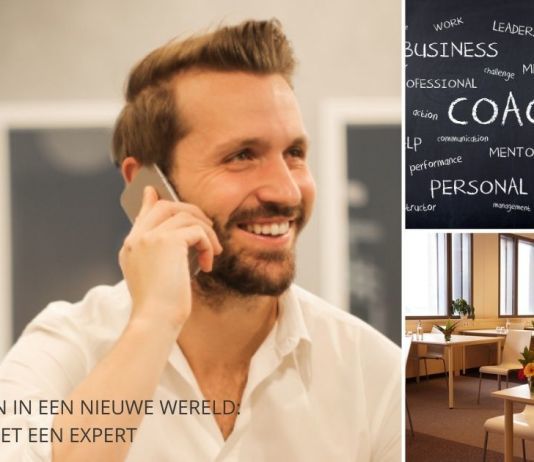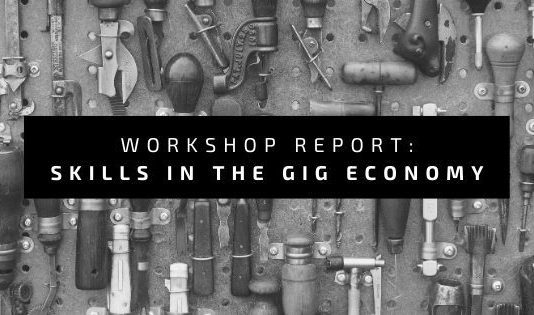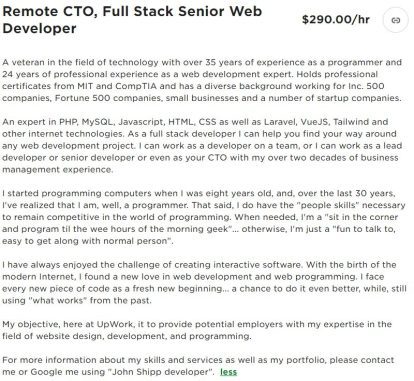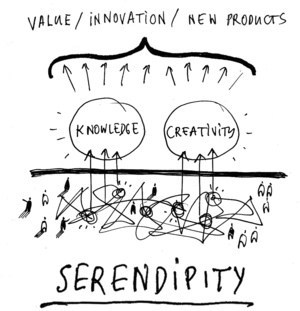Marcel van Marrewijk's Blog, page 12
February 22, 2021
How to Stop Worrying About Money (Habits to Form in 2021)

Money is required for almost everything in our modern lives. Managing money can often be a challenge. Even the thought of the potential problems money can cause leaves many people worried and stressed. Learning the tricks and tips to stop worrying about money will not only improve your financial situation but will also improve your health and well-being by lowering your stress levels.
In this guide, we’ll talk through some ways you can utilise to help you get better control of your finances and stop worrying about money.
4 Habits That People with Surplus Money HavePart of a successful strategy to stop your worry about money is understanding how people who have surplus income, and therefore people who don’t worry about money, manage their finances.
They Are Prepared for EverythingPossibly one of the best ways to stop yourself having to worry about money is to plan ahead and be prepared for the unknown. It may seem like a contradiction to plan for something unknown, but it’s simpler than you think. The essence of being prepared is to always have a reserve to handle emergencies. When working out what you can afford, both now and in the future, always build in a percentage to cover emergencies.
They Protect Their MoneySetting up your finances to give you a safety net when you require it is only helpful if you can rest easy that the safety net is well protected. If you don’t take good care of your money, then the safety net you have spent time building up to ease your mind might not be there when you need it. Be careful with investments, be especially careful to spread your money around rather than keeping it all in one place. Also, don’t be afraid to move your money if the current location isn’t offering the safety and returns you expect.
They Have a Savings System in PlaceSavings can be useful for a variety of reasons. Whether you use them in the case of an emergency, for a big upgrade purchase (e.g. a new car), or a luxury treat, having a savings pot to fall back on can add a valuable safety net to stop you worrying about money. It can be hard to motivate yourself to save money, though, so having a good system in place is essential. For example, rather than just saving some money when you remember, try setting up an automatic transfer as a percentage of your income each month.
They Know When to Get HelpThe final trick is knowing when to ask and seek out help with your finances. Help can come from many places from friends and family to formal financial institutions. The important thing is that you seek out help and advice when you are unsure. Asking for financial guidance will pay off in the long-term when your money is safer and works for you. Also, don’t be afraid to seek out help in the form of loans, but only when absolutely necessary. A small influx of cash at the right time, even if you have to pay it back over a term of years, can make a significant difference, but borrowing money for needless expenditures can end up causing more stress and worry.
Increase Your Sources of IncomeSometimes saving and scrimping can only go so far when it comes to free up additional money in your budget. If your income sources can’t keep up with your expenditures, then it doesn’t matter how much you cut back and save, you will still be left with a deficit and end up worrying about money. In that case, the only thing you can do is look for ways to increase your income.
Increasing your income can be done in a number of different ways depending on what resources you have available and how much extra money you are looking to raise. Some amounts of money can be raised, and saved, by selling old items that you would otherwise throw away, for instance. If you are looking to raise more than a bit extra, though, it may be worth considering getting a secondary source of income. Freelancing and gig type work can be an excellent way to supplement your income without committing to the full hours of a second job.
Cut Out Unnecessary LuxuriesOne of the singlehanded best ways to increase your cash flow and help you stop worrying about money is to cut out unnecessary luxuries. The key term here is unnecessary, though. Saving some extra money, and thereby increasing your savings and cash flow, doesn’t mean cutting out all luxuries from your life; the trick is to cut out the unnecessary luxuries. With every purchase and luxury, first, ask yourself if this is something you truly want or need, and then ask if there is a better and cheaper solution you can use to save yourself some money. For example, if your furniture is looking a bit worn, before rushing out and spending lots of money on a new set, thinking about spending a fraction of the cost by restoring your old furniture first.
Very few people don’t have to worry about money at all. It is the elite minority that has the luxury of never thinking about their bank account balance for both the big and the small. For the rest of us, money is a constant consideration. While we all have different circumstances and resources, everybody finds themselves worrying about money at one point or another. Whether it’s affording the necessities or luxuries, having a reserve for when something breaks, or saving up for a holiday, money is always a concern. Using the tips and advice in this guide, you can learn how to plan and improve your financial status to help you leave concerns and worry about money in the past.
The post How to Stop Worrying About Money (Habits to Form in 2021) appeared first on Seats2meet.
How Will Long-Term Work-From-Home Impact Innovation, Collaboration, And Mental Health?

After the onset of COVID-19, the first step businesses took was to protect their employees. They made necessary agreements and started arranging an alternative way of working, where employees did not have to come to the office. Yes, work from home was the first thing that employees were asked as soon as coronavirus started to sweep the whole world. It first began in China in December 2019 and in a blink, the whole world fell prey to this virus.
When employees were asked to work from home, it was joyous news to some, while others could not digest the fact that they no longer be seeing their colleagues for God knows how long. Who knows there are gazillions of employees who still find WFH overwhelming, so under such situations enterprises should offer more benefits for employees working from home?
Well, it is still known that what will be the effect of WFH on the innovation and collaboration of companies, but this is something that the leadership of each company should consider. Work from home is also affecting employees on a more serious level which is impacting their mental health.
Impact of Work from Home on the EconomyNot only Work from home is impacting innovation and collaboration but it has wrecked the economy on a greater level. Some of the big names like Emirates, Starbucks, KeepTruckin among others, laid off hundreds of employees just because their company could not bear the burden of so many employees. Lesser revenues resulted in many companies going bankrupt and in turn, they had to say goodbye to their loyal employees who had nowhere to go.
Companies had to take loans to meet the depreciating revenue levels in order to make sure the companies’ operations remain intact. There are many big names who are ready to help the sunken businesses in such a crisis.
Employers who couldn’t even afford the loan are taking a big step of closing their companies temporarily or even permanently. The world is still under the spell of the second wave of the pandemic and no one can predict exactly when we all will come out of this crisis.
Impact on Collaboration and InnovationWork from home is not as easy as it sounds. Unknown technical issues, anxiety attacks, and the absence of interaction with colleagues have surely affected the well-being and productivity of employees. WFH is a hybridization of professional and personal lives because your home is your office and you cannot go anywhere else due to COVID-19. Every day you wake up and instead of dressing up and commuting to work you jump to another room and start working right away.
In the absence of face-to-face interaction with colleagues, inefficiencies can sweep into the collaborative process. Where in-person meetings were mandatory to exchange innovative ideas due to COVID-19 these have been limited to virtual meetings only. Due to this, collaboration and innovative brainstorming process has become ineffective. Though the companies are trying their best to provide tools that can enhance the operations, nothing can replace the physical interaction.
How Work from Home Is Impacting Mental Health?The abrupt shift to work from home has proven to be stressful for many employees around the globe, says Dr. Dominique who is currently a professor of people, organizations, and society at Grenoble School of Business. Since the onset of the COVID-19 pandemic, he has observed an increase in workplace anxiety and depression. There are various ways listed that how work from home is deteriorating mental health.
Lack of physical connectionEmployees are missing their social work circle. The main thing that kept them motivated in the office were their colleagues. Employees used to have a quick chit-chat with their colleagues at printer stands and coffee machines during short breaks to feel fresh and get back to work with a positive mindset. Now, everyone is stranded at their home, and there is no physical interaction at all, so people are feeling the lack of support as now they have n where to turn to when they are overburden with work. It has become challenging to build strong links with colleagues while working from home.
Working beyond shift hoursOne of the most stressful things that are affecting mental health is long working hours. Now people do not have to commute back home, so they are spending more time tackling their everyday tasks and therefore, spending more time working. In doing so, they are consuming their mental health to the fullest which is not a good sign.
Back to back meetings can trigger fatigueIn a physical setup, it is impossible to hop on meeting back to back. Since everyone moved to work from home, employees are spending more time in meetings which can lead to fatigue. Unlike WFH, it is not possible to conduct back-to-back meetings in a physical environment so some employers are taking full advantage of the pandemic and asking for more work from their employees which they have not signed up for.
Heightening work stress and workload is a major source of anxiety and stress which is not a good sign of mental health and it ultimately reduces the productivity of employees.
Final ThoughtsWorking from home is not all about negative things, but it is far from being the ultimate solution. Things remain uncertain that when will businesses get back to usual and even if we get back to offices how will we react to post-pandemic dynamics. Given the harsh reality, the long-term impact of WFH on innovation, collaboration, and mental health can be influenced by a company’s unique work from home policies and practices. Every employee on their own should remain vigilant and try to sail through the transition.
The post How Will Long-Term Work-From-Home Impact Innovation, Collaboration, And Mental Health? appeared first on Seats2meet.
February 15, 2021
How to Encourage STEM in Early Education
 What is STEM?
What is STEM?Science, technology, engineering, and mathematics (STEM) are largely used to influence innovative solutions to our world’s problems. Day-to-day decisions are increasingly being driven by data, with 90% of the world’s data generated just in the last two years. The proliferation of global access to mobile technology, the internet, and other innovations indicates that future generations should be STEM-literate. Demand for STEM jobs has increased so much that 2.4 million STEM-related jobs in the United States were expected to go unfilled in 2018.
Encouraging early STEM education for young children today will not only help develop interdisciplinary critical thinking now, it will also help set your child up with the critical, relevant skills that research says will be integral for your child’s future success.
Why STEM Education is Vital for KidsSTEM education is not just for college-level or even high school students. The U.S. Department of Education links a strong formative math education with future success in areas outside of just math, predominantly reading.
Early development is critical for future growth. Researchers report that the brain forms the most active connections during childhood. Nourishing a child’s inquisitive mind with new information supports active neural pathways at the most critical time of development. Constructing this foundation sets children up for future cognitive and socio-economic gains.
STEM programs and lesson plans exceed a science education. Not only does STEM education teach hard skills, it also fosters life skills, such as creative problem solving, logic, and resilience. STEM literacy empowers individuals with skills that serve them in STEM and non-STEM fields, alike. The ability to evolve as technology evolves and grows prepares people for success in all endeavors.
Future STEM Career PathwaysSTEM occupations grow faster than most other professions, command higher wages, and are required in non-STEM fields. Some examples of STEM careers include software developers, statisticians, and biomedical engineers. For further detailed information on STEM occupations, the Bureau of Labor Statistics provides a “periodic table” with details on entry to each field, career pathways, wages, and more.
Non-STEM Careers in a Tech-Oriented WorldSTEM increasingly integrates with non-STEM subjects, such as economics, finance, and linguistics. Higher education programs support STEM education for the professional development of people seeking non-STEM degrees.
Yale’s Department of Economics cites the “quantitative and analytic nature” of their program as the reason for changing economics’ designation from a social science major to a STEM major. Yale isn’t the only university readjusting their outlook; Princeton, MIT, Columbia, and other universities have also reclassified economics as STEM.
Diversity: STEM is for EverybodySociety traditionally regards STEM fields as masculine. The National Science Foundation reports that only 30% of women are employed as scientists and engineers in the United States’ STEM workforce. However, though a great understatment, it was largely girls and women who have influenced the world for what it is today.
Ada Lovelace is considered the first computer programmer, dating back to 1815. Katherine Johnson, featured in Hidden Figures, was so exceedingly good at math that her job at NASA was quite literally to check the work of computers. Of course, there are many others who have gone unrecognized. A welcoming learning environment and strong STEM curriculum empowers girls to pursue STEM fields, including computer science.
How Can Parents and Teachers Encourage STEM?Engaging in a diverse set of projects and activities best encourages passion and curiosity for STEM. Hands-on experiences, strong role models, and exciting problems motivate children to want to learn and grow. Through a blend of different projects and activities, STEM teachers and parents not only nurture a love for STEM, but also develop children’s desires to tackle complex problems that require a wide range of skills.
As the U.S. Department of Education outlines, parents do not need STEM degrees to help children learn science. Armed with just a magnifying glass and going outside, parents can teach kids about the world by asking children to observe, ask questions, and think about what they see about everything, from bugs to mud puddles.
STEM is for Young Kids TooSTEM is for all ages! Many local science centers host events that are designed particularly for young age groups. Young children discovering the world around them for the first time have much to learn and absorb from these programs.
In fact, just playing with children and offering creative, hands-on experiences inspires inquisitive minds. Toys and games that stimulate curiosity are excellent teaching tools. LEGOs, building blocks, as well as tinkering stations with items like string, straws, pipe cleaners, colorful tape, and popsicle sticks aid fine motor skills and spatial skills. Not only that, but they also teach how to plan, inquire, and think like scientists.
STEM Projects for KidsProject-based learning provides a strong sense of accomplishment, teaches resilience in the face of difficult problems, and shows how people adapt and learn from failure. Mentoring and guiding a child through projects builds confidence and gives them the tools they need to make their own ideas come to life. Many of Juni’s students utilize what they learn in our courses to program their own games, websites, and more. With someone there to help debug particularly tricky problems and offer guidance, students can pursue wilder, more creative ideas. We have also written more extensively on great coding toys and games for kids.
Beyond coding, there are many fun projects parents can do with their children, across all ages. Here are some selected project ideas and science experiments to get started!
Rock candySlimeGrowing crystalsColoring flowers by putting them in solutionUsing imagination to build LEGOsInspiring aspiring architects with KAPLA blocksMath Jenga…and of course, the traditional volcano!STEM Activities for Kids
According to the National Science & Technology Council, the best STEM education should be interdisciplinary and blend different forms of learning. Some of the best STEM lessons can be found through correlated skills of inquiry, creativity, and genuine excitement. Engaging in a full breadth of activities best supports a well-rounded education that forms a fertile foundation for innovation.
Outside a formalized STEM education, parents can support their child’s passions in a wide variety of ways. By exposing children to nature emporiums, museums, science centers, zoos, aquariums, and libraries, parents can inspire and nurture their child’s inquisitive mind and creativity. These locations often offer a variety of hands-on workshops, events, summer camps and programs, and more. Not only are these activities fun for children, but they’re great for the whole family!
STEM Helps Develop Lifelong SkillsThe drive for discovery and exploration that early STEM education develops will serve a child throughout their life and help them adapt to a changing, tech-driven world. By encouraging a child’s interests and passions, parents help develop their child’s abilities to be resilient to challenges, inquire about the world around them, and creatively solve problems.
This article originally appeared on junilearning.com
The post How to Encourage STEM in Early Education appeared first on Seats2meet.
Learnit in gesprek met een expert over leidinggeven op afstand.

Een gewaardeerde klant als gastblogger: Trainingscentrum Learnit uit Amsterdam.
Learnit in gesprek met een expert over leidinggeven op afstand.
Leidinggeven op afstand vraagt namelijk om een ander soort visie en aanpak van managers. In deze blog gaan we in gesprek met Learnit expert-trainer Anna Maria
De meeste mensen zijn er afgelopen jaar niet aan ontkomen; thuiswerken is in 2020 het ‘nieuwe’ normaal geworden. De verwachting is dat we zeker het eerste half jaar van 2021 nog regelmatig thuis zullen werken. Dit brengt verschillende uitdagingen met zich mee voor zowel werkgevers als werknemers. Ook op het gebied van leidinggeven is er veel veranderd tijdens de COVID-19 pandemie. Leidinggeven op afstand vraagt namelijk om een ander soort visie en aanpak van managers. In deze blog gaan we in gesprek met Learnit expert-trainer Anna Maria. Binnen Learnit draagt zij een grote verantwoordelijkheid voor alle trainingen op het gebied van leidinggeven, zodoende heeft ze door de jaren heen veel kennis vergaard en daarnaast veel ervaring opgedaan binnen dit vakgebied.
Ha Anna Maria! Dat klinkt spannend die “Nieuwe wereld”, zou je kunnen schetsen hoe je verwacht dat deze wereld eruit komt te zien voor leidinggevenden?
Anna Maria: “Ik zie leidinggevenden in de nieuwe wereld meer werken op resultaat én ik voorzie dat ze veel meer aandacht hebben voor de mens achter de medewerker. Er ontstaat een meer gelijkwaardige manier van samenwerken, waarbij verbinding en vertrouwen sleutelwoorden zijn.”
Zou je kunnen aangeven wat de voordelen zijn van deze nieuwe manier van leidinggeven?
Anna Maria: “Leidinggevenden kunnen hiermee een enorme groei doormaken, ook als mens. Je investeert in een duurzame relatie met je teamleden, waardoor er veel minder vanuit angst en wantrouwen zal worden gewerkt. Dat geeft rust en vertrouwen in je medewerkers en ook in jezelf als leidinggevende. En als je stuurt op resultaat, kun je je als leidinggevende gaan bezighouden met de grote lijnen, met ontwikkeling van je team en je afdeling. Een heel groot voordeel.”
En hoe zit het met de nadelen?
Anna Maria: “Het belangrijkste nadeel vind ik het missen van contact, van de informele momenten, die kleine complimentjes die je tussendoor kunt geven, het met elkaar meeleven, even bijsturen. En natuurlijk is het ook lastiger om in de gaten te houden of een medewerker het allemaal wel redt en kan. En bijvoorbeeld het inwerken van nieuwe mensen wordt ook een grotere uitdaging.”
Welke fouten zullen leidinggevenden in jouw ogen relatief vaker maken met deze nieuwe manier van leidinggeven?
Anna Maria: “Voor mij ligt het risico vooral bij de mindset, de focus van een leidinggevende. Als je werkt en communiceert vanuit het oude normaal, dan zul je de grip op je team kwijtraken. En dan zullen ook de resultaten onder druk komen te staan. Dus bijvoorbeeld willen controleren of een medewerker wel precies om 8 uur begint en doorwerkt tot 17.00 uur, of precies willen weten hoe een medewerker een taak uitvoert.”
Op 10 februari geef je een (gratis) webinar over dit onderwerp, kun je alvast een tipje van de sluier oplichten van wat je dan gaat bespreken?
Anna Maria: “In dit webinar bespreek ik wat er verandert en wat dit betekent voor een leidinggevende. En ik geef tips hoe je als leidinggevende de omslag kunt maken van oud naar nieuw: sturen op resultaat en leidinggeven vanuit verbinding en vertrouwen.”
Klinkt goed! en wat nou als ik zelf geen leidinggevende ben, is het webinar dan ook interessant om te bekijken?
Anna Maria: “Jazeker. Het geeft je inzicht in wat er verandert voor een leidinggevende, maar ook voor teamleden en medewerkers. Je krijgt een beter beeld over hoe je elkaar kunt helpen bij het maken van de omslag.”
Om jou te helpen jezelf te ontwikkelen om tijdens en na de COVID-19 pandemie de leidinggevende te zijn die je werknemers nodig hebben, organiseert Learnit op 10 februari tussen 13:00 – 13:30 uur een gratis webinar genaamd: “Leidinggeven in een een nieuwe wereld”. Ben jij benieuwd naar dit webinar? Klik dan hier voor meer informatie over het webinar of meld je direct aan. Hopelijk zien we je dan!
Seats2meet Brabant vindt het fijn artikelen van gastbloggers een podium te geven, want wij zijn nu eenmaal geen standaard vergaderlocatie. Bezoek jij ook regelmatig een van onze locaties en heb je een artikel te delen of een online training? Let us know!
The post Learnit in gesprek met een expert over leidinggeven op afstand. appeared first on Seats2meet.
Week van De Euthanasie van 13 tot 19 februari

Een gastblog van onze klant, Nederlandse Vereniging Voor Euthanasie.
Hoe bereik je mensen met een lastig onderwerp?
Neem nou vragen over euthanasie of het levenseinde. Dat is en blijft voor velen een moeilijk onderwerp om over te praten én om je goed over te informeren. Om in die behoefte te voorzien, organiseert de NVVE van 13 t/m 19 februari de Week van de Euthanasie. En dat gaat prima online …
Denk je dat de Nederlandse Vereniging voor een Vrijwillig Levenseinde (NVVE) er alleen voor ouderen of zieken is? Ons adviescentrum beantwoordt dagelijks vele vragen van jonge mensen die zich zorgen maken over hun ouders, familie of vrienden. Opvallend vaak gaan deze vragen over euthanasie bij dementie. In de Week van de Euthanasie brengen we dit onderwerp naar je toe:
Met de première van een documentaire
Op zondag 14 februari kun je via een livestream vanuit filmtheater Tuschinski in Amsterdam de première Dokter Kees bijwonen. Na het zien van deze documentaire van Jesse van Venrooij weet je welke dilemma’s er bij arts en familie spelen bij de vraag of euthanasie bij de diep dementie Willy aan de orde is. Na afloop kun je meepraten in een livegesprek met dokter Kees, filmmaker Jesse en de naaste familie van Willy.
Met informatieve webinars
Veel mensen willen bij voortschrijdende dementie niet het einde meemaken waarin men zichzelf totaal verliest. Zelf bij dementie de regie houden over het levenseinde is lastig, maar niet onmogelijk. In een gratis webinar leggen we uit hoe je voor je zelf of voor je naasten een volkomen afhankelijk leven kunt voorkomen. Na afloop krijg je een whitepaper met een stappenplan mee. Je hoeft geen lid van de NVVE te zijn om je in te schrijven.
Met een podcast
Euthanasie is echt niet alleen een onderwerp voor ouderen. Vóór corona organiseerde NVVE jongeren al maandelijks door heel Nederland Café Doodnormaal om te kunnen praten over het levenseinde. Omdat dit nu niet kan, lanceren zij op zaterdag 13 februari Café Doodnormaal dé podcast. Je vindt de serie met interessante gesprekken over het levenseinde via de reguliere podcastkanalen.
Met columns op social media
Op Twitter, Facebook en LinkedIn plaatsen we video’s waarin elke dag een andere expert of ervaringsdeskundige zijn column over euthanasie voorleest. Onze gastcolumnisten zijn: cabaretier/schrijver/muzikant Vincent Bijlo, medisch ethicus Gert van Dijk, psychiater Menno Oosterhoff, voormalig verpleeghuisarts Marinou Arends en Carla Bekkering, coördinator van het Adviescentrum van de NVVE. Zo pik je al kijkend heel wat interessante informatie op.
Meer informatie Week van de Euthanasie: www.nvve.nl/weekvan
Inschrijven webinar: www.nvve.nl/week-van-de-euthanasie/digitale-lezing-euthanasie-bij-dementie
Kaartje voor livestream Dokter Kees: www.nvve.nl/week-van-de-euthanasie/premiere-dokter-kees
The post Week van De Euthanasie van 13 tot 19 februari appeared first on Seats2meet.
February 11, 2021
Gig Economy Skills, a Workshop Report

How to prove working skills for platform mediated gigs? How to make your skills contribute to the acquisition of your next gig or job? Those questions marked the workshop ‘Gig Economy Skills’.
Platform expert Martijn Arets researches on how reputation data and transaction data of gig platforms could strengthen workers’ positions on the labor market. In cooperation with six entrepreneurs and his partners, he currently develops a digital ‘CV’ called het kluspaspoort (lit. gig passport). Their goal is to make it possible for platform workers to export data on their gathered experiences and take it along in order to use this reputation data in finding new gigs through other platforms or employment otherwise.
“But, what does it actually say that you performed a certain gig?” asks Arets. “Reputation data of platform workers is rather limited. Probably, you would only know how many gigs you’ve done and how the client has rated those. To enrich the data, it would be worthwhile to automatically map skills and competences needed for certain gigs and integrate these in the digital CV.”
How would we manage to link skills to the performed gigs? And how would we be able to link those skills to the next gig or job? Those questions were central to an online workshop held on January 26th. The subject being of importance to many different organizations was underlined by a very diverse group of participants, among which were Platform entrepreneurs, employers, labor unions, researchers and public institutions who all shared their two cents.
The importance of skills and platforms for UWV (Dutch Employment Service)
Jeroen Schuil and Frank Verduijn were the representing labor market consultants of UWV. “Skills help matching supply and demand, which makes this subject very interesting to us,” explains Verduijn. “If we are able to comprehend what someone is capable of, we will be able to match them with many more jobs. If you are a good salesman, you could just be as valuable for a shop as well as a call center.”
Schuil and Verduijn are heavily researching on labor market developments in the name of UWV WERKbedrijf. This branch of the Dutch benefits agency seeks to bring together jobseekers and employers.
What are skills?
Skills are understood as all kinds of professional competences. Ranging from technical competences (hard skills) like driving a car, sales, and cooking, to so-called soft skills like people skills, creativity and problem solving.
UWV WERKbedrijf is currently focused on jobs. Schuil hopes to be able to work more with platforms in the future. “A huge part of the jobseekers has part-time work obligations, but would gladly work more,” he states. “Meanwhile, employers are looking for people to fill the gaps during different times of the day. A platform could help us match those two groups. And when we will be able to translate the experience workers acquire during their gigs into skills, which we are then able to match other jobs; we will have come full circle.”
UWV and TNO develop a self-learning system
UWV cooperates with the Central Bureau of Statistics (CBS) and TNO in an attempt to build a so-called ‘skills-ontology’: a self-learning system to better match supply and demand in the labor market. A similar system, by the name CompetentBE, which links skills to jobs, is already in place in Belgium. Based on this idea, these three parties are working on a Dutch version dubbed CompetentNL.
How will this system be used? According to TNO researcher Joost van Genabeek, skills are a much more informative indicator than diplomas and work experience. “The work experience of a salesman at a multinational differs greatly from the experience of a salesman at a local business,” he clarifies. “An educational degree is bound to show outdated information as soon as you develop in your professional career.”
Task descriptions and job ads could also include more knowledge and skill based information, he argues. “Picturing someone’s career in terms of skills has countless benefits. Skills communicate much more detail in terms of what would be needed to perform certain tasks. To you as a worker, it would be much clearer which skills you need to develop to keep up with the labor market.”
Never ready
“We describe jobs and visualize similarities between jobs”, adds UWV expert Verduijn. “When we are able to signal overlap between jobs, it becomes easier to retrain jobseekers or even mobilize them to take on a seemingly very different job, that still uses many of the same skills.”
“CompetentNL should become a smart, self-learning system,” emphasizes UWV advisor Schuil. “Jobs, functions, competences, and all their mutual relationships keep changing; it is a never ending story,” he explains. “Moreover, a manager at a supermarket has a different skillset from a manager of a publishing house. There is a certain overlap, but I wouldn’t want to deploy these two persons in each other’s job.”
Research
The fact that jobs, job ads and the need for certain competences are constantly changing is also apparent in research by Flemish software company Actonomy (2018). Read more about that in their Dutch report ‘Wijzigingen in jobs, vacatures en vaardigheden’.
Skills passport
CompetentNL should be finished within three years, as the systems should also be the foundation for another TNO project: ‘skills passport’. This is an alternative CV, which isn’t based on education, degrees and work experience, but only on what somebody has proven to be capable of. “The idea is that a worker receives his own ‘locker’ with his skills, work experience and diplomas,” tells Van Genabeek. “One would be able to specifically share his credentials with potential employers.”
TNO partners with Rabobank, among others, mainly because the bank has already been working on a similar project: the so-called ‘Career Wallet’. This blockchain app has the same goal as the skills passport, i.e. contributing to labor mobility of the employed in the Netherlands. Van Genabeek, “It is practical to join in with existing development. Moreover, Rabobank wants to continue development. They recognize the importance of a passport based on skills instead of jobs.”
Moving from Skills to a Career
The difficulty of matching skills to jobs was also recognized by Christoph Bretgeld of SkillLab. His team started building software that translates ‘skills to career’ in 2018. “We set out to translate the skills of refugees in Europe,” he tells. “They have a hard time finding work, especially because their diplomas are not congruent with ours and, secondly, because they have no European work experience to show for their capabilities. How do their competences relate to Dutch jobs? If you understand someone’s skills, you will be able to make a much better link with the work that needs to be done.”
SkillLab establishes a ‘skill profile’ based on experiences in the past. Not only job experience should be considered, but also short gigs, informal care and hobbies. The system could very well be suitable for the platform economy.
“People have a natural difficulty identifying their skills,” says Bretgeld. “We are prone to think that a certain experience isn’t relevant, because it wasn’t paid for or because it happened too long ago. We are building an app to discern someone’s skills based on an interview. This way we create a complete CV, which can be matched with countless tasks and jobs by means of artificial intelligence.”
Read between the lines
“In order to make a solid match between job ads and jobseekers, one has to read between the lines,” mentions Filip De Geijter, CEO of Flemish software developer Actonomy. Actonomy’s software analyses profiles and translates that to terms found in job ads. “Job ads and CVs are hardly a match. Who would write in his application letter about his experience with ‘the follow up on clients’?”
Besides, the software adds information the candidate hasn’t mentioned, but which the system deducts from the text. “For example, we know that a service technician has skills that are fit to other jobs,” tells De Geijter. “Based on its analysis, the system discovers when you are able to do A, you will be able to do B too. The continuous analysis of job ads and profiles of candidates teaches our system the deeper meaning of words. On top of that, the software is able to relate different job types with one another.”
This is how Actonomy helps solve the mismatch between supply and demand. Recruiters like Adecco, Accent and Job Leads are using the software. De Geijter, “This technology is also able to analyze task descriptions on gig platforms.”
I can ride a bicycle; can I take part in the Tour de France?
“Linking skills to tasks, is a job half-done,” says Bas van de Haterd. He is an advisor on the influence of technology on work. “Implicated in the currently developing technology is the fact that a skill is 0 or 1; you are either able or unable to do something. The world doesn’t work that way. I can drive a bicycle, but that does not mean that I can take part in the Tour de France.”
So, the fact you did something, does not directly imply that you are good at it. Van de Haterd, “Everyone recognizes that suspicious feeling about a certain coworker, when wondering how in the world he would have gotten that job. Even the time you have spent doing the same job does not imply anything about how good you are at it either. If that would be the case, my 25 years of driving experience would make me a better Formula One driver than Max Verstappen.”
Ratings of platforms
Ratings on platforms are therefore very interesting. “They do not only speak about someone doing something, but also include how well he did it,” the technology advisor explains. Taking freelance platform Upwork as an example, he illustrates that users are reviewed on their trustworthiness, quality and communication.
“Those kinds of platform skills are surely usable in showing that you are fit for other tasks too,” he continues. “It doesn’t really matter whether you received positive reviews on your communication skills as IT-consultant, babysitter or taxi driver. It would be beneficial for the IT professional to take his reviews along, if he would like to go babysitting once in a while. That is, if he scores at least decently.”
Van Genabeek of TNO still finds it an interesting thought. “How good you are in certain skill is indeed not yet integrated in the system we are developing,” he admits. “In my opinion, it would be a nice innovation to have the system process ratings of gig platforms as well. That way we could indeed show level differences.”
ConclusionDuring the meeting it became clear that rating and review systems of platforms could provide great value, concludes Martijn Arets. “Especially the massive amount of gigs in combination with the ratings does say something about quality. This is only becoming more and more relevant, even for these platforms themselves. When you are able to detect skills in reviews and task descriptions, it will become easier to match supply and demand.”
Platforms are the ideal partners to engage with for such a skills passport, Arets stretches. “Mostly because they have a digital-first mindset and are already focused on data and automation. Secondly, they are able to make the problem comprehensible. There is no need for them to map the entire labor market as they set out in their own niche markets and expand to other industries accordingly. And finally, compared to traditional job brokers, platform entrepreneurs think along lines of facilitation instead of ownership of data and candidates.”
Arets emphasizes that platforms need innovation. “These digital CVs are cost-effective, especially where platforms are matching workers to short term gigs”, he explains. “It is perfectly natural for a recruiter to have a job interview or two with a new manager who should lead a substantial change in their organization. But when hiring someone for one short gig, such a job interview would be way too expensive and time-consuming. Automation could solve that problem. A gig passport based on skills would be beneficial for both the labor market as well as individual platforms.”
About this research:
This workshop is part of a research on how reputation scores could sustainably be guaranteed on platforms matching labor supply and demand. By strongly focusing on the development of practical, relevant advice, this research contributes to the maturing of the platform market and the empowerment of the position of contractors using platforms for their work. This research is an initiative of Martijn Arets and is supported by: UWV, FNV, YoungOnes, Seats2Meet, Freshheads, the Swedish Employment Service, the Dutch Ministry of Economic Affairs and Climate and the European Trade Union Institute (ETUI). More information is available on www.kluspaspoort.nl .
The post Gig Economy Skills, a Workshop Report appeared first on Seats2meet.
February 2, 2021
How to Optimize Your CV for a Freelance Career

Flexible working hours and working place probably seem attractive to people of today. Thanks to online technology, people finally got the chance to work whenever they want from the park, coworking space, or anywhere else. However, becoming a successful freelancer is a process that lasts long. The skills and knowledge that people have are not enough for a successful beginning of a freelance career. People need to learn how to promote themselves. That is the reason why optimizing the CV for a freelance career is an essential move.
Highlighting your career history, the languages you speak, and the reasons why you are a good team player are no longer the essential parts of a CV. Clients want to know how exactly freelancer’s skills can help them achieve the goals they have. For instance, adding too much fluff content will reduce the quality of the CV. Despite that, freelancers often try to overdesign the layout of the CV and split impress the potential client in that way.
Finding the simplest way to design the CV and meet client’s requirements should be the goal of every freelance worker. By going through a couple of stages, they will manage to do that. It is about time to find those stages and optimize your CV for a freelance career.
The formatting should be SimpleAdding millions of details to your CV is not the way to grab the attention of potential clients. The format needs to be simple and eye-pleasing. That means people should stick to short sentences and paragraphs. Of course, if bullet lists can boost the readability score of a CV, using them would be a smart move. On the other hand, the font they are using should also be clean and simple. Fonts like Calibri, Times New Roman, Arial, and Cambria are the ones people can use.
The example below shows that you can say everything about yourself without using a complex format. Most of the sentences contain less than 20 words, and all the paragraphs are short.

According to Statista, the average daily time people spend reading is around 16 minutes. That is the main reason why you should make the paragraphs and sentences simple. The reading habits of people are not at the highest level. If the CV of a freelancer is complex and confusing, there is a big chance employer won’t even read it until the end. There is no reason freelancers expose themselves to that type of risk.
Use the Keywords and PhrasesKeywords and phrases are not only essential for the optimization of the websites. Many employers are trying to find the perfect employee for their needs by using different applicant tracking software solutions. That is the reason why people need to include them in their CV before publishing it.
For instance, let’s imagine that someone who is a content writer wants to find a job. He should start by optimizing the headline with keywords that describe his work. For instance, his headline should be – Content Writer: Blog & Article Writing for Crypto Industry. In that way, the employer won’t have a problem finding him.
Now, Start Writing about YourselfPeople (including freelancers) usually try to impress employers with a long list of skills. However, there are a couple of things freelancers should exclude from their CV. First of all, outdated information is not something the CV should contain. On the other hand, adding irrelevant skills that won’t mean a lot to the client is unnecessary as well. If a person applies for a graphic design job, there is no reason to talk about video editing skills.
Every statement that a freelancer has needs to come with some evidence. For example, the employer won’t be impressed if the freelancer talks about his long working experience. Instead of that, he would be happier to see the portfolio of his potential client.
Graphic designers, for instance, should design a website and publish the logos, banners, and other promotional material they previously designed. On the other hand, social media managers should screenshot the results they achieved on their previous projects. Prepare all the necessary evidence that will confirm your expertise for a particular freelance job position.
Don’t Forget to Proofread Your CVAccording to John Smith, the thesis writer at GetGoodGrades, freelancers often use sophisticated words and wordy phrases and try to confirm their expertise in that way. However, as we said, the CV needs to remain simple and easy-to-understand. That is the reason why freelancers should proofread their CV before they apply for a job or publish it on freelance platforms. They should look for the best possible way to simplify all the wordy and complex sentences and terms. In that way, they will additionally boost the readability level of their CV.
Customize the CV If NecessaryLet’s imagine that a freelance content writer successfully applied for a job. He wrote ten crypto-related articles and delivered the quality that the employer was expecting. After that, he wants to apply for two different jobs. One client asks for a guest post writer, while the other one looks for a fashion writer. Will using the same CV raise his chances of getting the job?
Different clients have different expectations and requirements. That is the reason why people mustn’t use the same CV always. Instead of that, they should always customize it before applying. For instance, in this case, one client will look for guest post samples, while the other one would like to see fashion articles. On the other hand, neither of those two clients would like to know more about your success with crypto articles.
Freelance writers can, for instance, divide the topics of their articles into different categories. In that way, they will have enough proof to confirm their knowledge and expertise. The example below may serve as an inspiration.

Source: Jennifermfernandez.com
ConclusionThanks to these five steps, freelancers will manage to optimize their CV and ensure a successful career. However, designing an effective CV is only the first step. The knowledge and skill improvement are the processes that last. Using every opportunity to learn something new is the characteristic of every successful freelance worker. The hard work always pays off in the end.
The post How to Optimize Your CV for a Freelance Career appeared first on Seats2meet.
8 Home Office Hacks To (Secretly) Shave Hours Off Your Work

In the past 12 months, working from home has become the norm for much of Australia’s population. Whether you were already doing so, or you’ve been forced out of the office due to COVID-19, creating a home office that’s comfortable is essential for productivity. The following hacks will help you increase the amount of work you get done at home:
Have A Dedicated AreaIf you’re constantly switching rooms to escape the kids, or you’re stumbling between the kitchen bench and dining room table to do your work, you’re going to find that productivity wanes. Having a dedicated area that you can escape to will increase your comfort and efficiency. If you have a spare room, give it a makeover to fit a desk and chair. If you’re pushed for space, set up a corner in the living room.
Keep It MinimalClutter impacts productivity – a study found that cluttered workspaces can lead to financial loss within a company, equal to 10% of the manager’s salary. Organise your space. If you use a lot of papers for work, get some drawers so you can hide them away when you’re not using them. Also, don’t overdo the decorating or this can be extremely distracting when you’re trying to get work done. Choose one or two feature paintings, a sculpture or two, and then just have your desk. Avoid 50 family photos – you’ll find yourself staring at those when you should be working.
Ergonomic SpaceIf you spend even 10% of your day thinking about how sore your back is, it’s time to get a new chair. Sitting at a desk all day isn’t good for you, even less so if you don’t have the right chair or ergonomic setup for your desk and computer. If you’re uncomfortable, you’re going to be less productive. Invest in a quality chair, sit up straight with your feet flat on the floor, ensure your mouse and keyboard are both within easy reach, and that your monitor is directly behind those – at arm’s length in front of you. That’s a good start.
Don’t Skimp On A Great Keyboard And MouseBefore you worry about where you sit the mouse and keyboard, make sure you have purchased the right ones! Every keyboard and mouse work differently, some are bigger, smaller, some have sticky thick keys and loud clicks, others are more compact. Before you buy, test them out instore. Sticky keys that annoy you when you type, or a mouse that is set too fast for clicks, will lower your productivity and lead to mistakes being made.
Fresh AirIf you want to get more work done at home, open the windows! Yes, it can be that simple. Fresh air is great for your health – it improves your blood pressure, strengthens the immune system, and it helps with concentration! Which is great when you’re stuck at home working all day. One study found that just 30 minutes of outdoor time actually provides efficiency in work by 45%! Not only that, but a well-ventilated office with low pollutant levels can increase productivity by up to 11%. If you can’t open the windows, take a walk outside every couple of hours to get refreshed. Or you might even consider sitting outside on occasion. And grab yourself some plants as these help to create fresher air.
Natural LightNot only is fresh air important, so is natural light. Natural light helps to regulate the body’s sleep-wake schedule, so your body and mind know when it’s time to get motivated, and when to rest. Exposure to lots of natural light in the day is said to help you sleep better at night, which in turn impacts the amount of work you get done. Natural light also helps to reduce eye strain as you can see your computer more clearly, improve your mood and reduce headaches.
Keep It CleanKeep your space clean and tidy and you’ll find it much more comfortable for getting work done. When you work from home, it’s easy to create mess – papers everywhere, notes and pens all over the place. Tidy it up. Ensure you have enough space and as we mentioned earlier, hide away all the clutter in drawers. Throw out your rubbish straight away, wipe up your coffee spills and install shelves to help with the organisation.
Unplug After WorkOne of the worst habits people have when working from home is that the work never stops. Even after you’re finished for the day, the emails keep coming and because your computer is right there, you’re always tempted to open up and see what’s happening. Resist the temptation. At the end of the day, turn off your computer completely, switch off your work phone, and if need be – unplug the internet! The harder it is for you to access everything, the less likely you’ll try. If you can, allocate particular hours daily to work – and leave it at that.
Final ThoughtsIf you want a healthy combination of work life and home life, you need to keep the two separate, as much as possible. By creating your own space, sticking to it, and keeping it clean, you will not only get more work done, but you’ll also enjoy the experience of working from home a lot more.
The post 8 Home Office Hacks To (Secretly) Shave Hours Off Your Work appeared first on Seats2meet.
Interview vol ondernemers tips van Ronald van den Hoff

Bekijk hier een interview met Ronald van den Hoff door Laura Hamer.
Tijdens de PrepDays in januari jl. deelden diverse specialisten en ondernemers, waaronder Ronald, hun persoonlijke visie over ondernemen, de rol van marketing en sales.
Ronald deelt een overweldigende berg met tips over hoe serendipity ultiem voor je kan werken, wat werken in een netwerkorganisatie je oplevert, hoe je kan kennisdelen bij Seats2meet, hoe je jezelf door een crisis heen slaat en wat de kracht is van vragen stellen. Ook krijg je drie belangrijke trends voor ondernemers te horen en wat je komende tijd absoluut in de gaten moet blijven houden. Tot slot geeft hij startende ondernemers een sterke boodschap mee.
Ronald heeft ook een eigen missie voor 2021; verbindingen met stakeholders blijven optimaliseren. Dat is nu extra belangrijk. Veel mensen zien of anders spreken, zodat je contact blijft onderhouden met iedereen uit je netwerk. Waarom? Op het juiste moment kun je in de toekomst de juiste vragen aan de juiste persoon stellen. Kortom: verbinden, verbinden en nogmaals verbinden.
Duik hieronder in het exclusieve interview en laat je lekker onderdompelen in de tips.
The post Interview vol ondernemers tips van Ronald van den Hoff appeared first on Seats2meet.
February 1, 2021
4 Tips voor het verhogen van de werknemerstevredenheid

Als een werknemer met een nieuwe baan begint, is deze erg gemotiveerd. Een nieuw bedrijf, nieuwe functie, nieuwe collega’s. Alles is nog nieuw en de werknemer heeft ontzettend veel zin in de nieuwe uitdaging. De motivatie van deze persoon is op dat moment erg hoog, na verloop van tijd zwakt dit echter af en wanneer hier niet goed mee omgegaan wordt, kan de werknemer in een sleur terecht komen. Op dat moment wordt het werk eentonig en ziet de werknemer nog weinig uitdaging. De werknemerstevredenheid zal langzaamaan afzwakken. Dit kan gezien worden in de uitgevoerde werkzaamheden en zal dus een negatieve invloed hebben op het bedrijf. Er zijn verschillende manieren om dit weer te verhogen. Zo is het mogelijk om activiteiten te organiseren, is het belangrijk om doelen te stellen en waardering te tonen. Een luisterend oor waar naar geluisterd wordt is ook essentieel.
Organiseer activiteitenEen belangrijke factor omtrent de werknemerstevredenheid is de werkomgeving. Dit betreft de werkplek, de locatie van de werkplek maar ook de collega’s. Afhankelijk van de functie zal er worden samengewerkt met collega’s. Een goede band met collega’s verhoogt de werknemerstevredenheid. De werknemer gaat met meer plezier naar zijn/haar werk wanneer deze zich op zijn gemak voelt bij collega’s. Uiteraard hoeven collega’s geen goede vrienden te worden, maar goed met elkaar omgaan is wel van belang. Een goede manier om de band tussen collega’s te verbeteren is door een bedrijfsuitje te organiseren. Voornamelijk in de grote steden in Nederland worden leuke uitjes van top tot teen georganiseerd. Denk maar eens aan een bedrijfsuitje in Rotterdam of een groepsuitje in Amsterdam. Voor elke onderneming is het mogelijk om uitjes op maat te organiseren.
Stel doelenAls een werknemer zich 40 uur in de week bezighoudt met dezelfde werkzaamheden is het gevaar dat deze in een sleur terecht komt. Er lijkt geen einde te komen aan de werkzaamheden en er wordt nergens naartoe gewerkt. Dit is echter wel een erg belangrijke factor voor het personeel. Er moet ergens naar uit gekeken kunnen worden, er moet een eindstreep en een doel zijn. Het opstellen van doelen of targets die gehaald dienen te worden motiveert een werknemer. Daarnaast krijgt de werknemer op deze manier het gevoel echt een bijdrage te leveren.
Toon waarderingElke werknemer heeft een leidinggevende. Deze leidinggevende heeft de controle over de werkzaamheden en ziet wat de werknemer goed en fout doet. Als er iets fout gaat moet dit opgelost worden. Als er iets goed gaat, dan gaat alles gewoon door. Er wordt helaas vaak vergeten om werknemers te belonen bij goed afgeleverd werk. Dit zou vaker gedaan moeten worden, dit zal het personeel goed doen waardoor zij beter in hun vel zitten en gemotiveerder zullen zijn. Naast een compliment kan dit ook gedaan worden in de vorm van een kaartje, bos bloemen, cadeautje of een bonus.
Luister naar het personeelHoe de werknemerstevredenheid het beste verhoogd kan worden is door te achterhalen hoe je dit kan verhogen. Dit betekent dus dat je het direct aan de werknemers kan vragen. Wat missen zij tijdens hun werkzaamheden? Wat gaat er juist goed en wat fout? Op basis hiervan kun je zaken aanpassen. Wellicht zijn er onbesproken zaken waar je van tevoren nooit aan had gedacht. Middels een anonieme enquête kun je er eenvoudig achter komen wat de werknemerstevredenheid kan doen verhogen.
The post 4 Tips voor het verhogen van de werknemerstevredenheid appeared first on Seats2meet.



